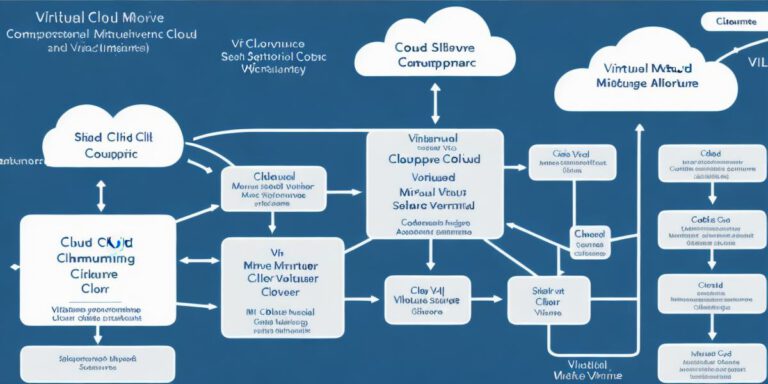Cloud Hosting vs VPS: A Cost Analysis

As a programmer, you know how important it is to have reliable and efficient hosting for your websites and applications. But with so many options available, it can be overwhelming to choose the right one for your needs. One of the most common questions we hear from our clients is whether cloud hosting or VPS (Virtual Private Server) hosting is cheaper. In this article, we will compare the costs of these two types of hosting and help you make an informed decision about which one is best for your business.
What are Cloud Hosting and VPS Hosting?
Cloud hosting refers to a type of hosting where resources such as CPU, memory, storage, and bandwidth are provided by multiple servers located in data centers around the world. This allows users to access these resources on demand, paying only for what they need.
VPS hosting, on the other hand, refers to a type of hosting where a single physical server is divided into multiple virtual machines, each running its own operating system and applications. Users have full control over their VPS, including the ability to configure the server settings and install any software they want.
The Cost Comparison
One of the main advantages of cloud hosting is that it is generally more cost-effective than VPS hosting. This is because cloud providers are able to spread the cost of maintaining their data centers over a large number of customers, making the overall cost per customer much lower. Additionally, cloud hosts offer scalable pricing, meaning that users can easily upgrade or downgrade their resources as needed, without incurring any extra costs.
VPS hosting, on the other hand, requires users to pay for the entire server upfront, regardless of how much they actually end up using. This can be a significant disadvantage for businesses that experience fluctuating traffic or unpredictable growth. Additionally, VPS hosts require users to manage their own servers, which can be time-consuming and costly in terms of maintenance and software updates.
Real-Life Examples
Let’s take a look at some real-life examples to help illustrate the cost differences between cloud hosting and VPS hosting:
- A small business with a website that receives moderate traffic might choose a shared hosting plan, which costs around $5 per month. This is the cheapest option available, but it also means that the server is shared by multiple users, which can result in slower loading times and reduced performance.
- A medium-sized business with more complex applications might choose a VPS hosting plan, which costs around $20 per month. While this offers more control over the server settings, it also requires the business to pay for the entire server upfront, even if they only end up using a fraction of its capacity.
- A large enterprise with high traffic and complex applications might choose a cloud hosting plan, which can cost anywhere from $10 to $50 per month, depending on the resources needed. This offers scalable pricing, meaning that the business only pays for the resources they use, and also provides access to advanced security features and backup options.
Conclusion
In conclusion, cloud hosting is generally more cost-effective than VPS hosting for businesses of all sizes. While shared hosting is the cheapest option available, it can result in slower loading times and reduced performance. VPS hosting offers more control over the server settings but requires users to pay for the entire server upfront, even if they only end up using a fraction of its capacity. Cloud hosting offers scalable pricing, advanced security features, and backup options, making it the best choice for businesses that experience fluctuating traffic or unpredictable growth.
FAQs:
- What is the difference between shared hosting, VPS hosting, and cloud hosting?
- Shared hosting refers to a type of hosting where resources such as CPU, memory, storage, and bandwidth are provided by multiple servers located in data centers around the world. VPS hosting refers to a type of hosting where a single physical server is divided into multiple virtual machines, each running its own operating system and applications. Cloud hosting refers to a type of hosting where resources such as CPU, memory, storage, and bandwidth are provided by multiple servers located in data centers around the world.
- Is cloud hosting more expensive than VPS hosting?
- In general, cloud hosting is more cost-effective than VPS hosting. This is because cloud providers are able to spread the cost of maintaining their data centers over a large number of customers, making the overall cost per customer much lower. Additionally, cloud hosts offer scalable pricing, meaning that users can easily upgrade or downgrade their resources as needed, without incurring any extra costs.
- What is the best choice for a small business with a website that receives moderate traffic?
- For a small business with a website that receives moderate traffic, a shared hosting plan might be the best choice. This is the cheapest option available but can result in slower loading times and reduced performance.








